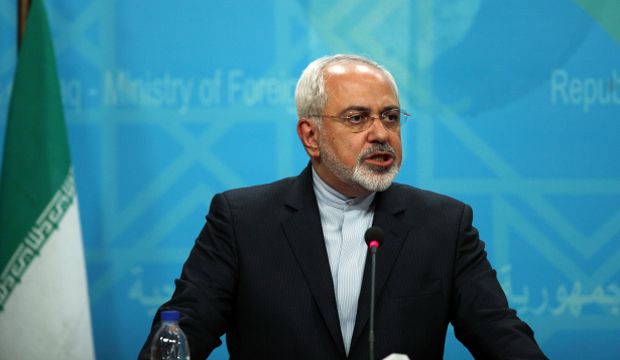
In this Sunday, August 24, 2014 file photo, Iranian Foreign Minister Mohammad Javad Zarif speaks during a joint news conference with his Iraqi counterpart in Baghdad. (AP Photo/Ahmed Saad)
New York, AP—Iran’s foreign minister on Wednesday ruled out cooperating with the United States in helping Iraq fight Islamic State of Iraq and Syria (ISIS) militants and warned that the terrorist group poses a much broader global threat that needs new thinking to eradicate.
Mohammad Javad Zarif said Iran has serious doubts about the willingness and ability of the United States to react seriously to the “menace” from ISIS “across the board” and not just pick and choose where to confront it as it has just started doing in Iraq.
“This is a very mobile organization,” he told the Council on Foreign Relations. “This is not a threat against a single community nor a threat against a single region. It was not confined to Syria, nor will it be confined to Iraq. It is a global threat.”
The US–Iranian relationship is at a delicate moment, with a new round of talks on a deal to rein in Iran’s nuclear program set to begin on Thursday, which Zarif said is his top priority. Leaders of the two countries—who talked a year ago—are also arriving next week for the annual ministerial meeting of the UN General Assembly.
Iran was the first country to provide help to neighboring Iraq when ISIS swept across the border from Syria in July. France wanted Iran to attend an international conference in Paris on Monday aimed at coordinating actions to crush the ISIS extremists in Iraq, but the United States objected to Tehran’s involvement in the event.
Zarif called the 24 participating nations at the Paris conference “a coalition of repenters” because most supported ISIS “in one form or another” from its inception following the US invasion of Iraq in 2003.
At the end of the day, he said, they created “a Frankenstein that came to haunt its creators.”
Zarif said Iran’s assistance—without any troops—helped Iraq prevent ISIS from taking over Baghdad and the Kurdish capital Erbil.
Zarif said it was now time for the international community, “and particularly the coalition of the repenters,” to stop providing financing, military equipment and safe passage for the group and its fighters.
He said the international community must begin to deal with the resentment and disenfranchisement that allows ISIS to attract young people from the Middle East, Europe and the United States.
The international community, he said, must also recognize that in a globalized world problems can’t be solved through coercion, exclusion or imposing solutions.
Zarif agreed with US President Barack Obama that the group is neither Islamic nor a state so he referred to it by a previous name, ISIS, and not “Islamic State” or the related acronym “IS.” But he was critical of the US approach to dealing with the threat from the group.
In Iraq, where the US is carrying out air strikes, Zarif said, “It [ISIS] will not be eradicated through aerial bombardment.”
In Syria, where the US is beefing up military support for the moderate opposition to confront the extremists and step up opposition to President Bashar Al-Assad’s government, he said, “You cannot fight ISIS and the government in Damascus together.”
When Zarif was asked what circumstances could lead the two countries to collaborate or even discuss the threat posed by ISIS in Iraq, he said he told US Secretary of State John Kerry that Iran had two fundamental principles: “It should be for the Iraqis to decide and we should not be rewarding terrorists.”
He also implicitly criticized the US for supporting Iraq’s new Prime Minister Haider Al-Abadi to replace Nuri Al-Maliki, saying Iraqis must be allowed to determine their own politics.
“And that was one of the problems we had in the initial approach by the United States, and that is why we turned it down,” Zarif said.
